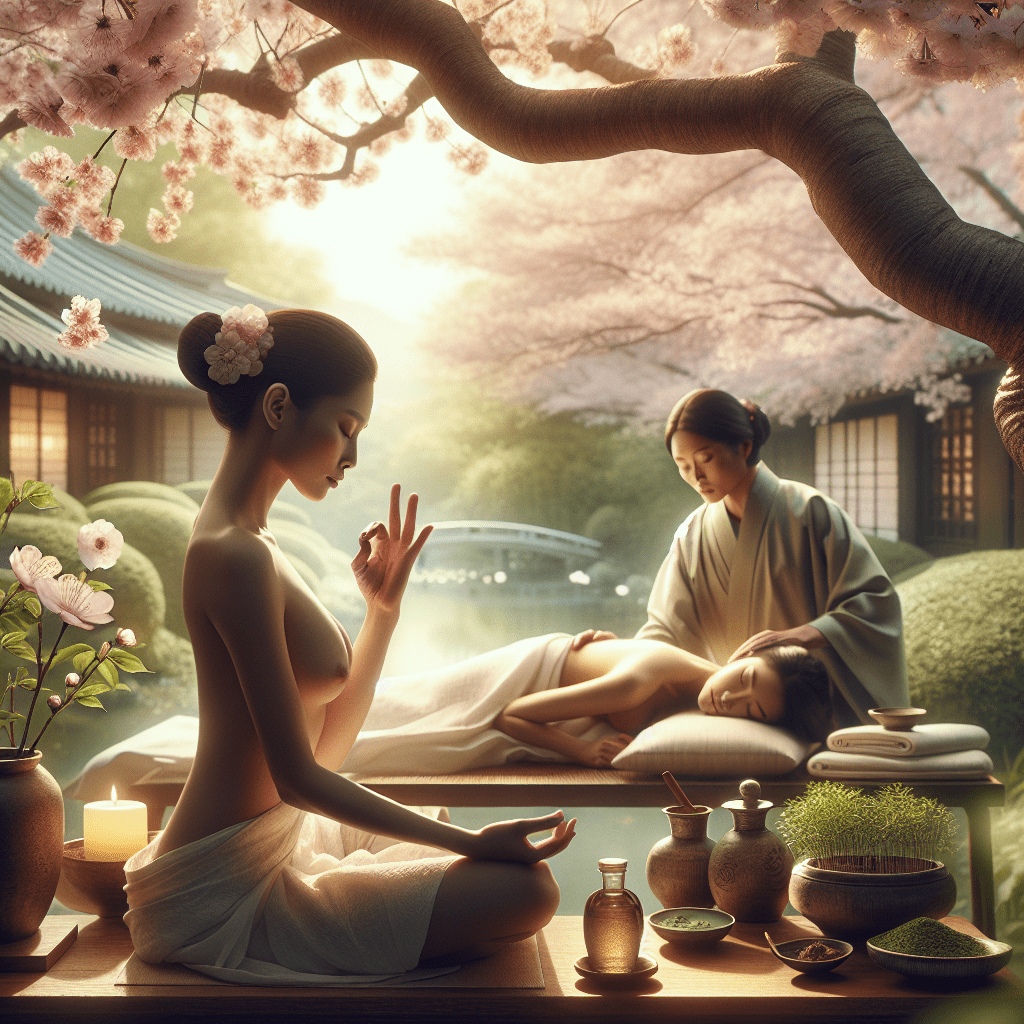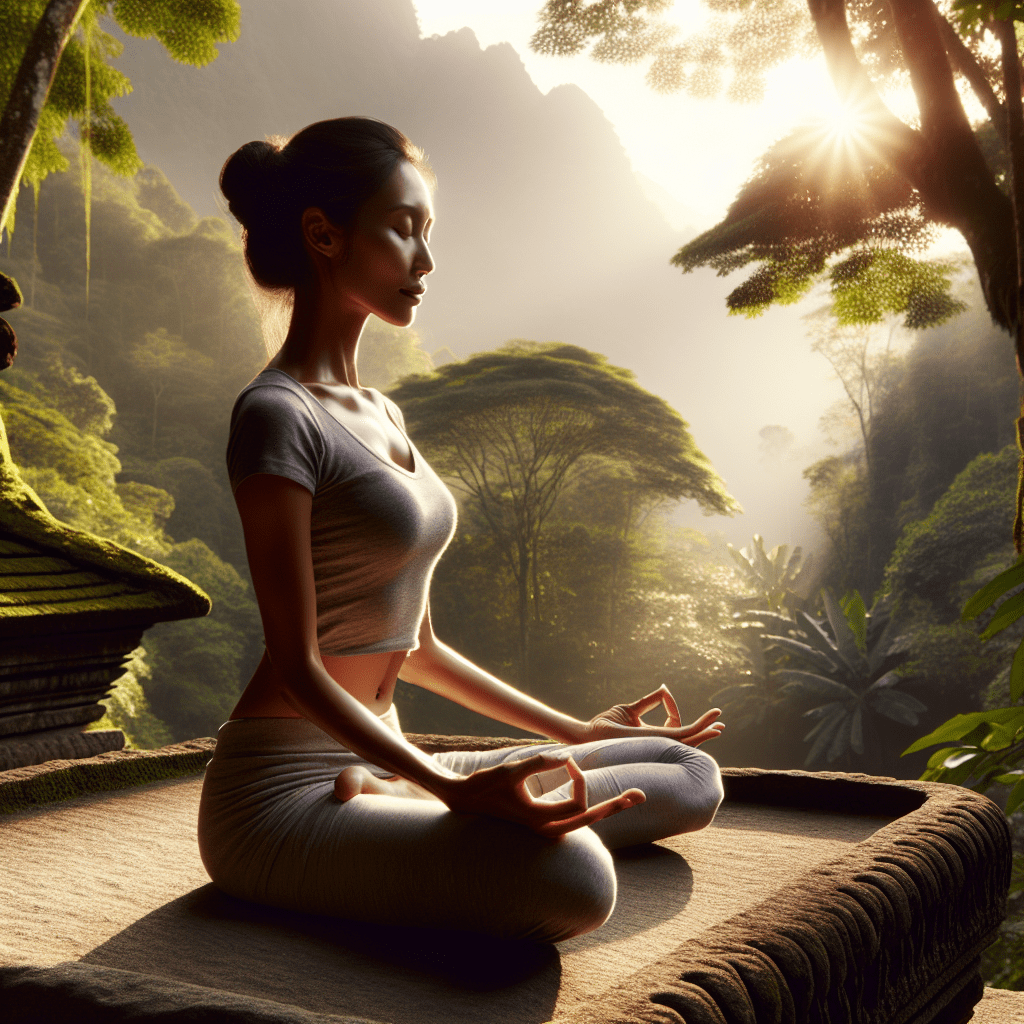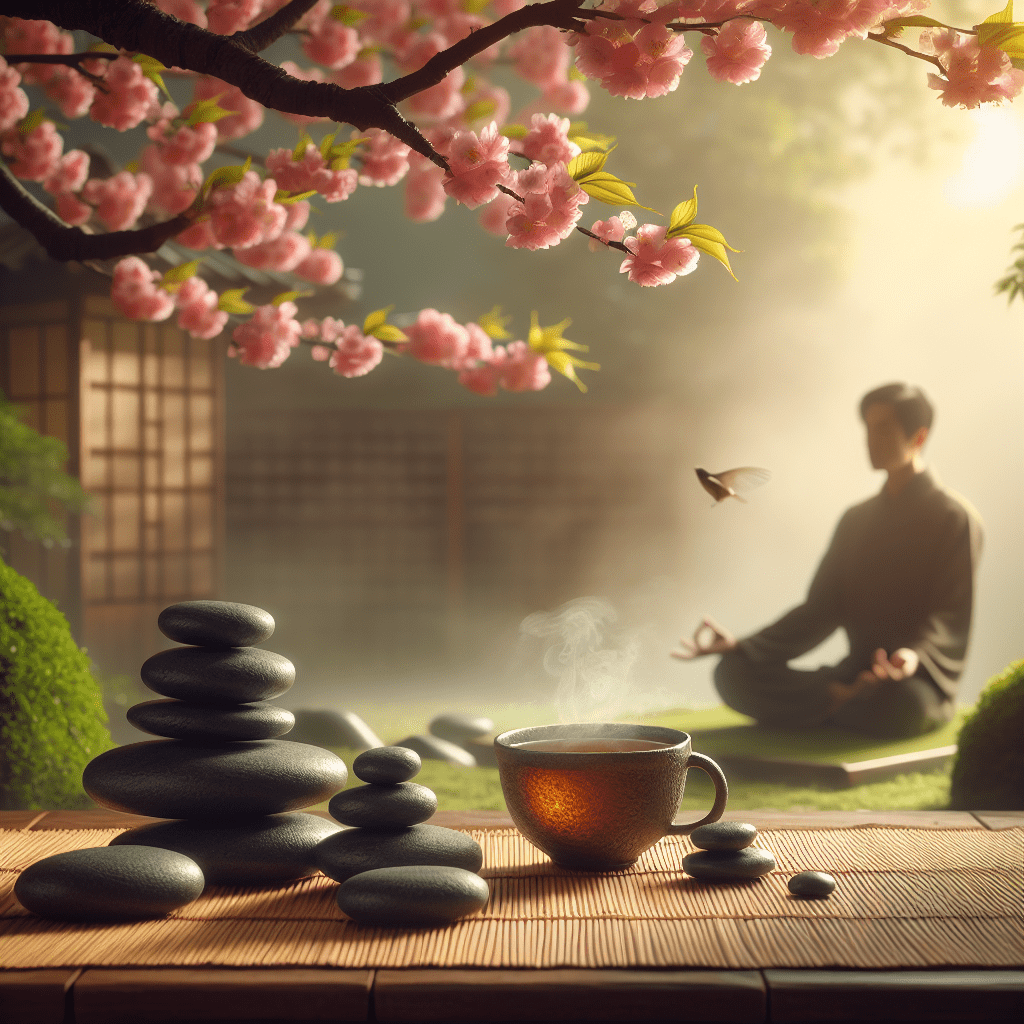Have you ever felt like something was missing from your health routine? Maybe you’re doing everything “right” – eating well, exercising regularly, getting enough sleep – yet still feeling off-balance or disconnected? You’re not alone. Many of us are discovering that true wellness goes beyond just physical health, and this is where Eastern wisdom offers some fascinating insights.
The concept of holistic health isn’t new, but it’s gaining tremendous attention in our fast-paced, stress-filled world. Holistic health recognizes that we aren’t just physical bodies – we’re complex beings with interconnected systems of body, mind, spirit, and emotions. When one area suffers, the others are affected too. This interconnectedness is at the heart of Eastern wellness philosophies that have guided millions of people for thousands of years.
Unlike the Western approach that often treats symptoms in isolation, a balanced wellness approach considers the whole person. It asks not just “What’s wrong?” but “Why is this happening?” and “How can we restore balance?” This perspective shift can be revolutionary for those of us used to compartmentalizing our health concerns.
Ancient Wisdom for Modern Wellness
Eastern health practices have stood the test of time for good reason – they work! Practices like acupuncture, yoga, and herbal medicine have been refined over centuries to address the whole person, not just isolated symptoms.
Acupuncture, a cornerstone of Traditional Chinese Medicine (TCM), works by stimulating specific points along energy pathways in the body. What was once viewed with skepticism in Western countries is now widely accepted, with many insurance companies even covering treatments. Research has shown acupuncture can effectively relieve chronic pain, reduce stress, and improve sleep quality – all without the side effects often associated with pharmaceutical approaches.
Yoga, another Eastern practice, has exploded in popularity across the Western world. Far more than just stretching, yoga combines physical postures with breathing techniques and meditation to create a comprehensive wellness practice. Regular practitioners report improved flexibility, strength, and cardiovascular health alongside reduced stress, better mood, and enhanced mental clarity.
“So much of health and well-being happens outside of the walls of a hospital,” notes Dr. Sarah Chen, an integrative medicine specialist. “When we integrate Eastern practices like mindfulness and holistic approaches with conventional medicine, we see patients thriving in ways they hadn’t before.”
Herbal medicine traditions from China, India (Ayurveda), and other Eastern cultures offer natural remedies that support the body’s innate healing abilities. These traditions view herbs not as isolated compounds but as complex medicines that work in harmony with the body’s systems. Modern research is increasingly validating what traditional practitioners have known for generations – many herbs contain powerful compounds that can support health and wellness.
The Balancing Act: Understanding Traditional Chinese Medicine
At the heart of Traditional Chinese Medicine lies a profound understanding of balance. TCM views health as a state of harmony between opposing yet complementary forces: yin and yang.
Yin represents the cool, passive, and nurturing aspects of life – think of nighttime, rest, and stillness. Yang embodies the warm, active, and energetic qualities – like daytime, movement, and stimulation. Neither is inherently good or bad; both are necessary and must exist in proper proportion.
In our bodies, this balance manifests through the flow of Qi (pronounced “chee”), the vital life energy that animates all living things. When Qi flows smoothly and yin and yang are balanced, we experience health and vitality. When blockages occur or imbalances develop, illness can result.
“In TCM, organs are categorized by their yin (substance) and yang (function) attributes,” explains TCM practitioner Dr. Li Wei. “Health is viewed as a balance between these forces. For example, the kidneys store essence (yin) while also governing growth and development (yang).”
What makes this approach so valuable is its preventive nature. TCM doesn’t wait for disease to appear before taking action. Instead, it recognizes subtle imbalances before they manifest as illness, allowing for gentle corrections that can prevent more serious conditions from developing.
This balanced wellness approach doesn’t reject modern medicine – rather, it complements it. While Western medicine excels at emergency interventions and treating acute conditions, Eastern wisdom offers powerful tools for prevention, chronic care, and maintaining optimal wellness.
The Mind-Body Connection: Eastern Approaches to Mental Wellness
Perhaps one of the most valuable contributions of Eastern wisdom to our wellness puzzle is its deep understanding of the mind-body connection. Long before Western science confirmed the link between mental states and physical health, Eastern traditions were developing sophisticated practices to cultivate mental wellness.
Meditation and mindfulness, once considered fringe practices, are now recommended by mainstream healthcare providers. Research has shown that regular meditation can literally change the brain, increasing gray matter in regions associated with self-awareness, compassion, and introspection while reducing activity in the amygdala, our brain’s fear center.
Mindfulness-Based Stress Reduction (MBSR), developed by Jon Kabat-Zinn but deeply rooted in Eastern contemplative traditions, has been scientifically proven to reduce stress, anxiety, and depression. Studies indicate that “MBSR can improve immune system functioning, cardiovascular health, blood pressure and cortisol levels, sleep quality, and reduce symptoms of depression.”
These practices do more than just help us feel calm in the moment – they actually retrain our nervous systems, helping us shift from chronic stress responses to more balanced states. This has profound implications for our physical health, as chronic stress is linked to inflammation, heart disease, digestive disorders, and numerous other conditions.
In Eastern traditions, the mind isn’t separate from the body – they’re part of a unified whole. This perspective helps us understand why emotional wellness is crucial for physical health, and vice versa. When we nurture our mental and emotional well-being through practices like meditation, we’re not just “relaxing” – we’re actively supporting our physical health.
The Art of Balance: Eastern Philosophy in Daily Life
Balance isn’t just a physical state – it’s a philosophy that extends to all aspects of life. Eastern wisdom teaches us to find the middle path between extremes, whether in diet, exercise, work, or relationships.
Consider the Eastern approach to nutrition. Rather than labeling foods as simply “good” or “bad,” TCM evaluates foods based on their energetic properties and how they interact with an individual’s constitution. Some foods are warming, others cooling; some build energy, others cleanse. The goal isn’t restriction but harmony – eating according to your body’s needs, the season, and your current state of health.
This balanced wellness approach extends to activity and rest as well. While modern Western culture often glorifies constant productivity and intense exercise, Eastern wisdom recognizes the vital importance of rest and recovery. Practices like Tai Chi and Qigong cultivate both strength and softness, teaching us to move with intention rather than force.
“In the body, Yin and Yang work together to maintain a consistent internal environment,” says acupuncturist Maya Johnson. “Too much activity without adequate rest depletes our Yin energy, while too much stillness without movement causes stagnation of Yang. Finding your personal balance is key.”
This philosophy of balance offers a refreshing alternative to the all-or-nothing thinking that characterizes many wellness approaches. Instead of swinging between extremes – crash diets followed by binges, intense exercise followed by burnout – Eastern wisdom encourages sustainable, balanced practices that can be maintained throughout life.
Practical Steps: Bringing Eastern Balance Into Your Life
You don’t need to overhaul your entire lifestyle to benefit from Eastern wisdom. Small, consistent changes can make a significant difference in your overall wellness. Here are some practical ways to incorporate a balanced wellness approach into your daily routine:
Start your day mindfully: Instead of immediately reaching for your phone, take five minutes to sit quietly, focus on your breath, and set intentions for the day. This simple practice can shift your nervous system out of stress mode before the day even begins.
Eat according to the seasons: Eastern traditions emphasize eating locally and seasonally. In summer, enjoy cooling foods like fresh fruits and raw vegetables. In winter, focus on warming foods like soups, stews, and root vegetables.
Move with awareness: You don’t need to abandon your current exercise routine, but consider adding mindful movement practices like yoga, Tai Chi, or simple stretching. Focus on how movement feels in your body rather than just counting reps or calories.
Create balance between activity and rest: Schedule recovery time with the same commitment you give to productive activities. Remember that rest isn’t “doing nothing” – it’s actively replenishing your energy.
Explore herbal supports: Under appropriate guidance, consider how traditional herbal remedies might support your wellness goals. Many adaptogens like ashwagandha, holy basil, and reishi mushroom help the body manage stress and maintain balance.
Practice breathing techniques: Simple breathing exercises from Eastern traditions can activate your parasympathetic nervous system, reducing stress and promoting relaxation. Try breathing in for a count of four, holding for seven, and exhaling for eight.
Honor the mind-body connection: Notice how your emotional states affect your physical health and vice versa. Simple awareness of this connection can help you make more balanced choices.
The Best of Both Worlds: Integrating Eastern Wisdom with Modern Approaches
The most exciting development in health and wellness today isn’t choosing between Eastern or Western approaches – it’s the thoughtful integration of both. This balanced wellness approach takes the best of ancient wisdom and combines it with modern science and technology.
This is exactly the philosophy behind platforms like EASTCHI AI from HerbalsZen. By combining 2,000-year-old Eastern medical knowledge with cutting-edge artificial intelligence, EASTCHI AI offers personalized wellness recommendations based on your unique constitution, current health status, and goals.
Using frameworks like the Five Element Theory from Traditional Chinese Medicine, this innovative approach can identify patterns and imbalances that might be missed by conventional methods. It can then suggest customized nutrition plans, lifestyle adjustments, and self-care practices to restore balance and promote optimal wellness.
The beauty of this integrated approach is that it doesn’t ask you to choose between tradition and innovation. Instead, it recognizes that true wisdom can come from many sources, and the most effective wellness strategies draw from diverse traditions while respecting individual needs.
As we navigate an increasingly complex health landscape, this balanced wellness approach offers a path forward that honors both ancient wisdom and modern advances. By embracing the holistic perspective of Eastern traditions while leveraging the precision of contemporary science, we can create personalized wellness practices that address the whole person – body, mind, and spirit.
The missing piece in your health puzzle might not be another supplement, diet plan, or exercise routine. It might be the ancient wisdom of balance – the understanding that wellness emerges not from extremes but from harmony, not from isolation but from integration, not from fighting against your body but from working with its innate wisdom.
In a world that often feels fragmented and imbalanced, Eastern wellness philosophies offer a timeless reminder: true health comes from balance, and balance comes from honoring the interconnected nature of all aspects of our being.




